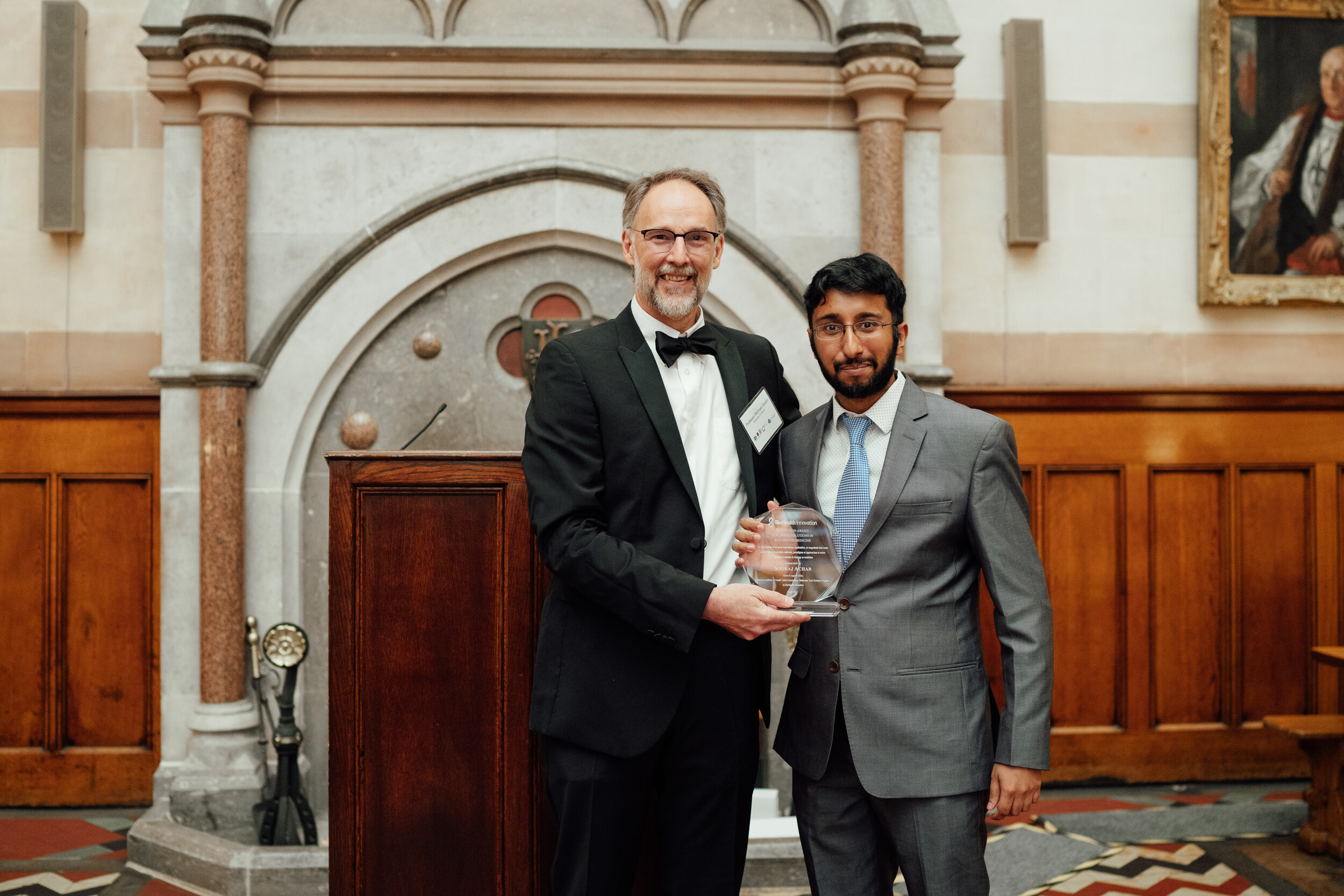First awarded in 2016, the International Biomedical Research Alliance’s Innovation Award recognizes novel solutions in biology or medicine and acknowledges discoveries of unusual importance, application, or magnitude that make use of new or unusual methods, paradigms, or approaches to solve important problems in biology or medicine. Once again, this year, the Innovation Award was generously sponsored by BioHealth Innovation Inc. This award was presented to Sooraj Achar, an NIH-Oxford D.Phil. Scholar in the Class of 2020 who is mentored by Dr. Gregoire Altan-Bonnet at the National Cancer Institute (NCI/NIH) and Prof. Mike Dustin at the University of Oxford.
Sooraj combined robotic sampling of mouse and human T cell responses over time with machine learning and modeling to gain insights into how T cells process information derived from the particular antigens to which they are exposed. The analysis showed that patterns of cytokine release carried information about the type of antigen encountered and distinguished six distinct cellular responses rather than the three types usually recognized. The universality of the model should prove useful for quantifying and fine-tuning the strength of antigens for immunotherapies and vaccine development. Thus, robotic platforms combined with machine learning and mathematical modeling provide quantitative tools with which to study high-dimensional biological dynamics and may help to optimize therapeutic strategies. Such understanding is likely to enhance strategies for immunotherapies that rely on altered and designed T cell responses.
This work was published in Science on May 19th, 2022, with Sooraj as the first author. “This study showed how we can use robotics and high dimensional data analysis to reverse engineer how T cells respond to a single type of antigen. I am now examining how a type of T cell used in immunotherapy, named a CAR-T cell, responds when interacting with multiple types of antigen simultaneously, first at a functional level at the NIH, then from a mechanistic level at Oxford. We hope to be able to use the insights we gain from these projects to design more targeted forms of CAR-T based immunotherapy,” remarked Sooraj.
About BioHealth Innovation, Inc.
BioHealth Innovation, Inc., is a regional innovation intermediary which supports the transformation of research projects into new business opportunities in partnership with the region’s rich assets, institutions, and entrepreneurial community. BHI achieves this goal by being a catalytic partner in the economic development ecosystem. Learn more at www.biohealthinnovation.org.

